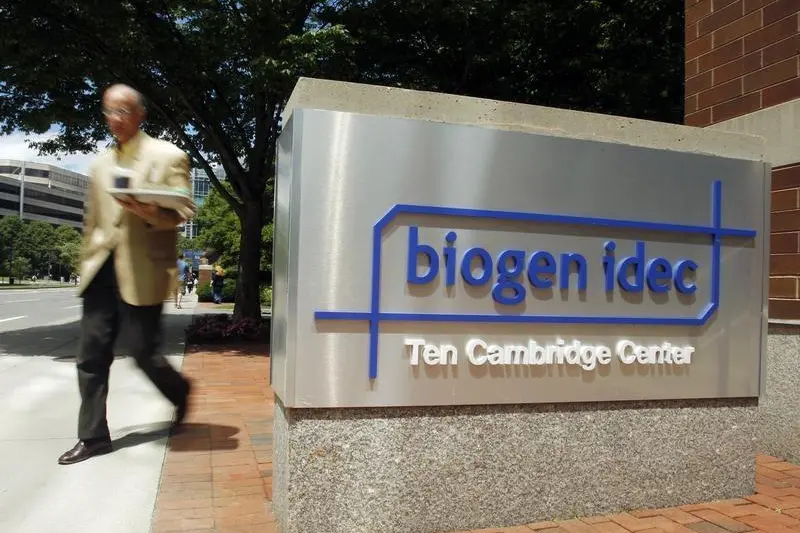PHOTO
Biogen Inc on Thursday said getting hospitals and clinics to use its new Alzheimer's disease drug Aduhelm and insurers to reimburse it has been slower than it expected, as controversy mounts over the U.S. Food and Drug Administration's approval process for the treatment.
The Cambridge, Massachusetts-based drugmaker's top scientist also defended the science behind the approval as well as the company's interactions with U.S. regulators before the FDA's June 7 action.
The FDA's acting commissioner, Janet Woodcock, has asked the U.S. Department of Health and Human Services' Office of the Inspector General to investigate whether talks between Biogen and the agency were consistent with the regulator's policies. The FDA decided to approve the drug against the recommendation of a panel of outside experts convened to advise the regulator.
Some prominent doctors, hospitals and health insurers have criticized the FDA decision and said they will not offer the drug. The Cleveland Clinic, one of the country's best-known health systems, and New York's Mount Sinai Health System said last week that they have decided not to carry Aduhelm.
Biogen had previously said 900 clinical sites would be ready to administer the drug immediately after its launch. So far, 35% of those sites have completed a positive review of the drug or indicated that they will not need one.
Biogen Chief Executive Michel Vounatsos said in a call with investors that uptake of the drug among clinics and hospitals was overall "a bit slower than what we assumed but we are making tremendous progress with some positives and some headwinds."
The drugmaker expects modest revenue from Aduhelm this year and to ramp up thereafter, adding that it is seeing "strong indications of very high initial patient interest as well as increased referrals."
The drug brought in revenue of $2 million in the first few weeks since its approval, below expectations of $3.23 million. A "big chunk" of that revenue so far reflects product that had been shipped to customers as inventory and had not yet been administered to patients, Vounatsos said.
In an open letter, Biogen's head of research and development Alfred Sandrock said the drug's approval process "has been the subject of extensive misinformation and misunderstanding."
"It is normal for scientists and clinicians to discuss data from experiments and clinical trials, to debate, and to disagree, on the interpretation of data," Sandrock wrote. "That is how science advances and we welcome these discussions."
(Reporting by Manas Mishra in Bengaluru; Editing by Will Dunham and Sriraj Kalluvila) ((Manas.Mishra@thomsonreuters.com; www.twitter.com/Manasmishra24; within U.S. +1 646 223 8780, outside U.S. +91 806749 2709))





















